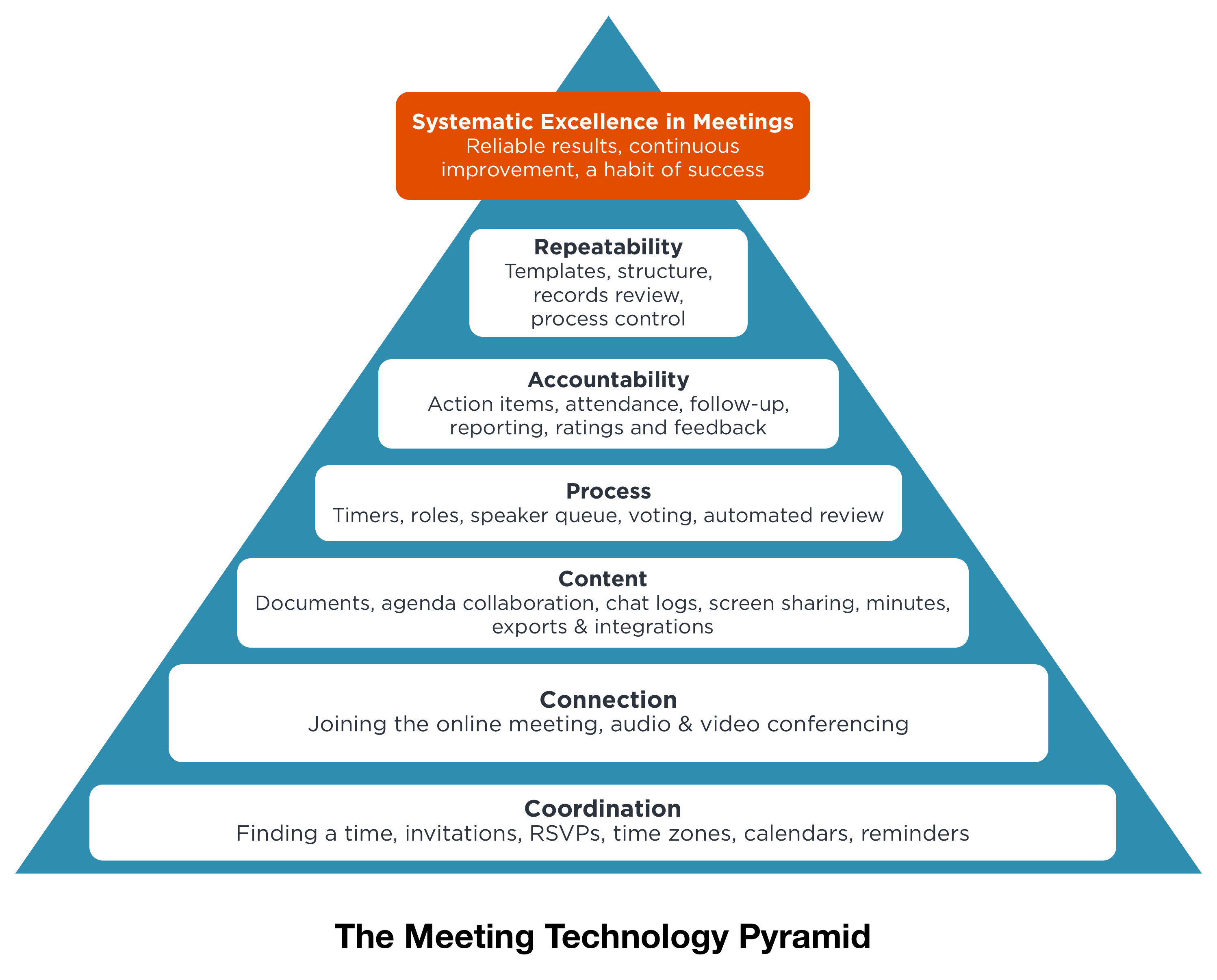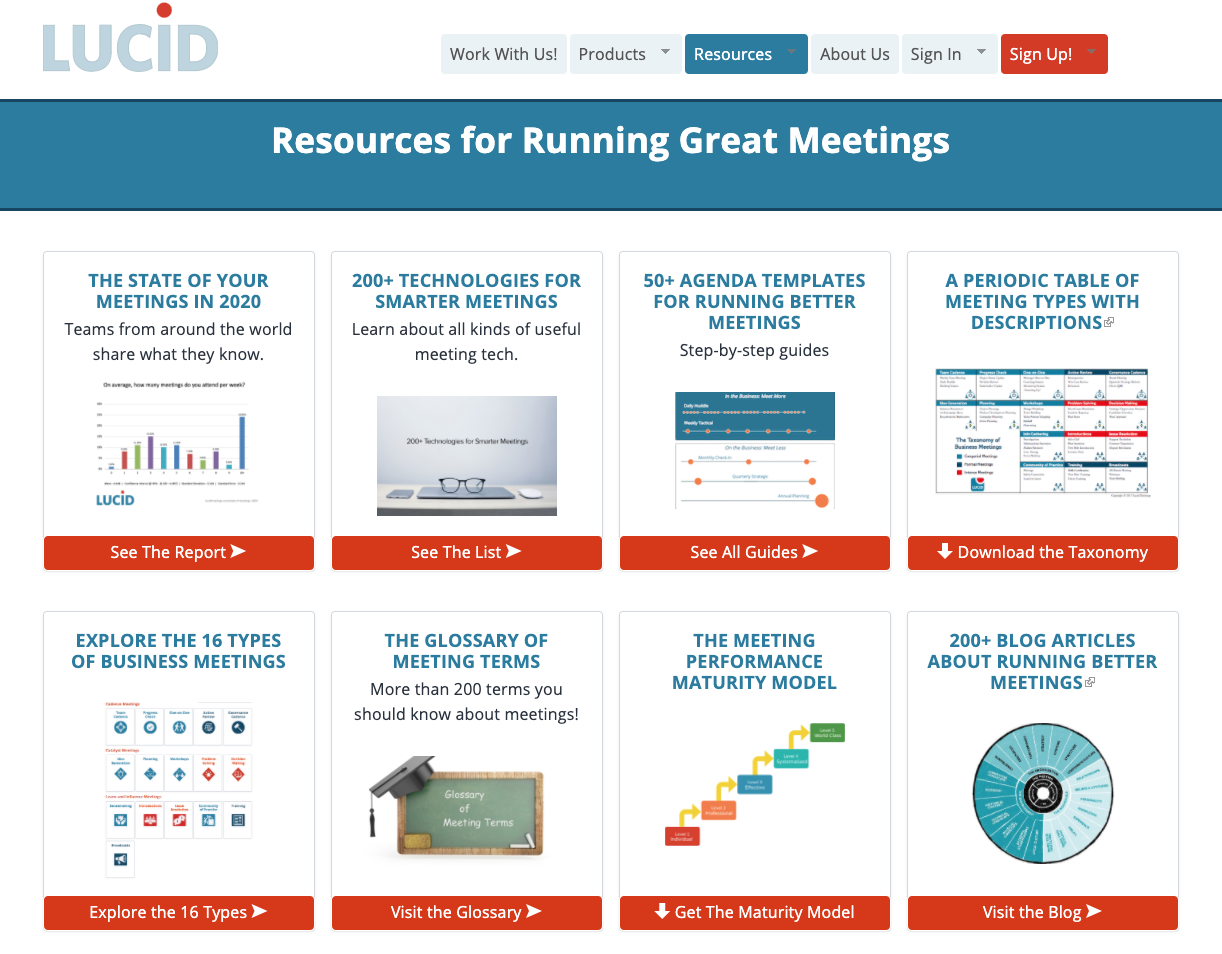Smarter Meeting Planning: The Process Approach
How do you go about scheduling a new meeting with a group of people? David Coleman writes about his research into more than 200 meeting scheduling tools in this August, 2016 CMS Wire article, Smarter Meeting Planning Tools Try to Save You the Headache.
One of the biggest hassles with meetings is actually setting the meeting up, with multiple emails flooding inboxes deciding who could meet, what the meeting is about, and forget about trying to pin down one time when everyone can attend.
David asks: “But what if there was a better way?” In David’s analysis, the approaches for scheduling a meeting can be broken down into four main categories:
- Publish and subscribe tools
- Calendar scheduling enhancements
- Resource management tools
- Smart meeting tools
The ordering of that list can be viewed as the evolutionary order of technical solutions to the scheduling problem, with the Smart Meeting Tools section capturing the current AI and Bot zeitgeist. There are quite a few good recommendations in each category, and I think there are some interesting capabilities on the horizon in the smart tools area. Read the full post to get a full sense of David’s insight into the scheduling challenge.
The article also talks about Lucid Meetings and our alternative approach based on a holistic view of effective meetings from a complete scheduling, execution, and results orientation.
An Alternative Approach
Before we move on to smart tools, let’s look at tools that look at the meeting as a process, offering ways to make that process more effective without reinventing the wheel. The best example here is Lucid Meetings, which takes a comprehensive and thoughtful approach to meetings and all their itinerant problems.
The Lucid Meeting Pyramid below shows booking meetings as the lowest step of the pyramid (“Coordination”). While addressing scheduling, Lucid Meetings incorporates multiple tools to offer a comprehensive solution to the meeting challenges represented in every step of the pyramid.
Lucid breaks the meeting up into three time-bound sections: planning the meeting, executing the meeting, and following through on the meeting. For example: here is what they do to help with scheduling and invitations.
Lucid’s more holistic approach uses a scheduling poll similar to Doodle’s, but also translates meeting times into each person’s time zone, and sends out a professional looking meeting invite email. It also makes sure that people get the meeting on their calendar, sends meeting reminders, and saves contacts for future meeting invites.
One of our goals in creating a comprehensive meeting platform was to bring more information to bear when planning, scheduling, and running all kinds of business meetings.
We believe that meeting organizers should plan their meeting before they try to schedule their meeting. To us, planning a meeting includes declaring the intended outcome or goal for the meeting, determining the process used to achieve that goal, establishing an agenda to describe and run the process, and understanding who should be invited (and who shouldn’t!). We talk about this thought process in our article Should you cancel your next meeting? [Includes free poster PDF].
We firmly believe these steps should be done before attempting to arrange a meeting time — partially to ensure that some basic thought has gone into the process, and partially to give the scheduling recipient more information to decide if they can (or will) attend. It’s possible I may decline availability because I don’t think I can add value. Or, based on the meeting goal and stated agenda, I may also respond with information that removes the need for the meeting entirely.
The Lucid Meetings process-based approach asks that the meeting organizer do a little more work up front to eliminate frustration and wasted time by everyone else later. This is a core philosophy of our company, our approach, and our software.
Lucid Meeting’s process-based approach to meetings, which deals with all of the problem entailed (before, during and after) is one of the more comprehensive meeting solutions I found in my research.
Thanks, David! And right back at you — your article on Smart Meeting Planning Tools is quite comprehensive and I’m looking forward to digging deeper into your complete listing.




